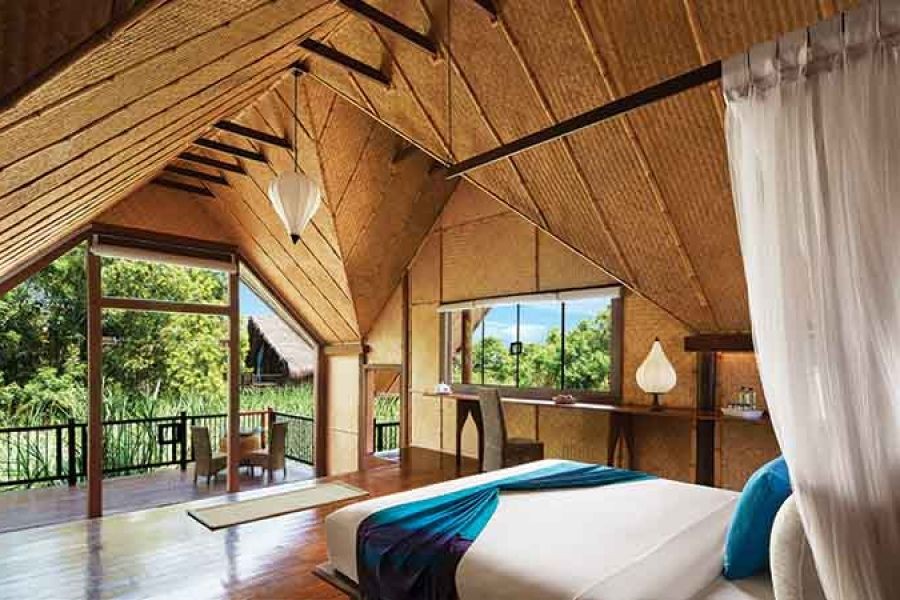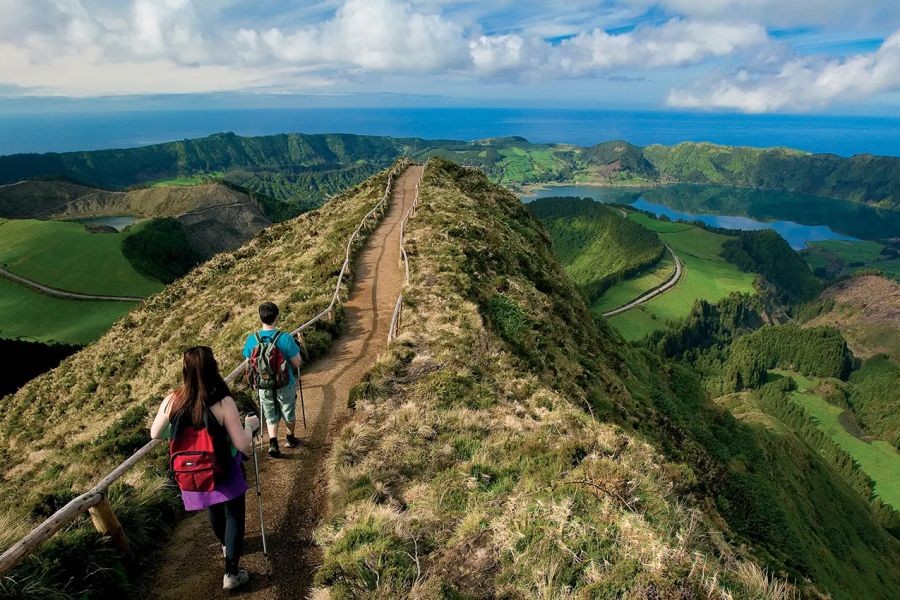In the heart of New Zealand, a country renowned for its stunning landscapes and commitment to sustainability, eco-friendly travel is more than just a trend; it's a way of life. With tourists increasingly prioritizing environmental responsibility, the tourism industry has adapted, offering a range of eco-friendly accommodations. This article delves into the top 10 eco-friendly hotels in New Zealand, highlighting their unique approaches to sustainability and what travelers can expect in terms of hospitality and environmental impact.
Why Sustainable Travel Matters in New Zealand
New Zealand's commitment to sustainability is evident in its comprehensive environmental policies and initiatives. The Ministry for the Environment has set ambitious goals to reduce greenhouse gas emissions and promote sustainable practices across industries. In tourism, this translates to a focus on eco-friendly accommodations that minimize environmental impact while maximizing guest comfort.
The hospitality sector is a significant contributor to New Zealand's economy, with tourist spending reaching NZD 17.5 billion in 2022, according to Stats NZ. With such economic stakes, the industry's shift towards sustainability not only addresses environmental concerns but also caters to the growing market demand for responsible travel options.
Exploring Eco-Friendly Hotels: A Deep Dive
1. Hapuku Lodge & Tree Houses, Kaikoura
Nestled in the picturesque Kaikoura, Hapuku Lodge offers guests unique treehouse accommodations built from sustainable materials. The lodge emphasizes locally sourced food and renewable energy use, aligning with Kaikoura's marine reserve conservation efforts.
2. Camp Glenorchy Eco Retreat, Glenorchy
Camp Glenorchy is New Zealand's first net-zero energy accommodation, designed to use 50% less energy and water than comparable facilities. Its design incorporates solar energy and water conservation technologies, reflecting the community's commitment to preserving the surrounding natural beauty.
3. The Resurgence Luxury Eco Lodge, Motueka
Located near Abel Tasman National Park, The Resurgence offers eco-friendly luxury with its solar-heated pool and organic gardens. The lodge supports local biodiversity through native planting and is certified by Qualmark, New Zealand's official quality assurance organization.
4. Vineyard Cottages, Auckland
These charming cottages, located on a working vineyard, emphasize sustainable agriculture practices. By using solar panels and promoting waste reduction, Vineyard Cottages offer a serene retreat for travelers looking to experience New Zealand's wine country responsibly.
5. Fiordland Lodge, Te Anau
Overlooking Lake Te Anau, Fiordland Lodge is committed to sustainability through its energy-efficient architecture and rainwater collection systems. The lodge's eco-conscious practices extend to its culinary offerings, which feature local and organic produce.
6. The Boatshed, Waiheke Island
The Boatshed on Waiheke Island combines luxury with sustainability, using locally sourced materials and energy-efficient technologies. The hotel supports local artisans and emphasizes the importance of community-driven sustainable tourism.
7. Bay of Many Coves, Marlborough Sounds
Accessible only by boat, this luxury resort prioritizes environmental stewardship by using solar power and eco-friendly waste management systems. The resort's location within a marine reserve underscores its commitment to protecting New Zealand's unique marine ecosystems.
8. Blue Duck Station, Ruapehu
Blue Duck Station focuses on conservation and sustainable farming practices, offering eco-friendly accommodations within a working farm. The station is dedicated to preserving native wildlife, particularly the endangered blue duck, through habitat restoration and predator control.
9. Awaroa Lodge, Abel Tasman National Park
Awaroa Lodge is a secluded eco-retreat that uses solar energy and water conservation techniques to minimize its environmental footprint. Its location in Abel Tasman National Park allows guests to experience New Zealand's natural beauty while supporting conservation efforts.
10. Split Apple Retreat, Nelson
This luxury retreat emphasizes wellness and sustainability, utilizing organic gardens and renewable energy sources. Split Apple Retreat offers guests a holistic experience, combining health-focused amenities with eco-friendly practices.
Case Study: Camp Glenorchy Eco Retreat
Problem:
Camp Glenorchy, situated in the stunning landscapes of Glenorchy, aimed to create a sustainable tourism model that would minimize environmental impact while providing luxury accommodations. Traditional hotels in the area consumed significant resources, leading to high energy and water use.
Action:
In response, Camp Glenorchy was designed with sustainability at its core, featuring solar panels, rainwater collection systems, and composting toilets. The retreat also uses passive solar heating and cooling, reducing energy consumption by 50%. The owners engaged the local community and environmental experts to ensure their practices aligned with regional conservation goals.
Result:
Within the first year of operation, Camp Glenorchy achieved net-zero energy status, setting a benchmark for sustainable tourism in New Zealand. Their innovative design and community collaboration have attracted eco-conscious travelers, increasing occupancy rates by 30% compared to traditional hotels in the region.
Takeaway:
This case study highlights the potential for eco-friendly accommodations to thrive in New Zealand's tourism industry by aligning with environmental goals and community values. Camp Glenorchy's success demonstrates that sustainable practices can enhance business success while preserving natural resources.
Balancing Sustainability and Luxury: Pros vs. Cons
Pros:
- Environmental Impact: Eco-friendly hotels reduce carbon footprints and conserve natural resources, supporting New Zealand's sustainability goals.
- Market Appeal: With 70% of travelers seeking sustainable options, eco-friendly hotels attract a growing segment of environmentally conscious tourists.
- Community Involvement: Many eco-hotels engage with local communities, supporting regional economies and cultural preservation.
- Innovative Design: Sustainable accommodations often feature cutting-edge eco-technologies, enhancing guest experience while promoting green practices.
Cons:
- Higher Costs: The initial investment in sustainable technologies and practices can be significant, affecting hotel pricing and profitability.
- Limited Availability: Eco-friendly accommodations are not yet widespread, potentially limiting options for travelers in certain regions.
- Operational Challenges: Implementing and maintaining sustainable practices requires ongoing effort and expertise, which can be resource-intensive.
- Perception Issues: Some travelers may perceive eco-friendly hotels as lacking luxury, despite evidence to the contrary.
Common Myths About Eco-Friendly Travel
Myth 1: Eco-friendly hotels are too expensive.
Reality: While some eco-hotels may have higher rates due to sustainable features, others offer competitive pricing. Eco-friendly practices often result in long-term savings on energy and water, which can be reflected in pricing.
Myth 2: Sustainable accommodations compromise comfort.
Reality: Modern eco-friendly hotels incorporate luxury and comfort with sustainable technologies, offering high-quality guest experiences without sacrificing environmental values.
Myth 3: Sustainability efforts have minimal impact.
Reality: Sustainable practices in hospitality significantly reduce carbon emissions and resource consumption, contributing to broader environmental goals and setting industry standards.
Future of Eco-Friendly Accommodations in New Zealand
As New Zealand continues to lead in sustainability, the demand for eco-friendly accommodations is expected to rise. According to a report by the Ministry of Business, Innovation, and Employment, eco-tourism could grow by 20% annually, driven by global trends and New Zealand's commitment to environmental stewardship. Hotels that integrate advanced eco-technologies and community-driven initiatives will likely see increased market appeal and profitability.
Final Takeaways & Call to Action
- Eco-friendly hotels in New Zealand offer a harmonious blend of luxury and sustainability, appealing to environmentally conscious travelers.
- Investing in sustainable practices not only benefits the environment but also enhances business success and community relationships.
- As eco-tourism grows, hotels that prioritize sustainability will be better positioned to meet market demands and contribute positively to New Zealand's economy.
Are you ready to explore New Zealand's eco-friendly accommodations and contribute to sustainable travel? Share your experiences or insights in the comments below, and let's continue the conversation on responsible tourism!
People Also Ask (FAQ)
How does eco-friendly travel impact New Zealand's economy? Eco-friendly travel boosts New Zealand's economy by attracting environmentally conscious tourists, increasing occupancy rates, and supporting local communities through sustainable practices.
What is the biggest misconception about eco-friendly hotels? One common myth is that eco-friendly hotels lack luxury. However, modern sustainable accommodations offer high-quality experiences with advanced eco-technologies.
How can travelers ensure they choose truly eco-friendly hotels? Travelers should look for certifications like Qualmark and inquire about the hotel's sustainable practices, such as energy use, waste management, and community involvement.
Related Search Queries
- Eco-friendly hotels New Zealand
- Sustainable travel in New Zealand
- Green accommodations NZ
- Top eco lodges in New Zealand
- Luxury eco-friendly hotels NZ
































joe white
9 months ago